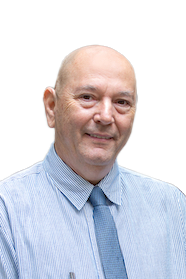Educational Webinars
Our online Dementia Talks are designed to support individuals living with dementia, their caregivers, whānau, and health professionals along their dementia journey.
Through these online education sessions, participants gain a profound understanding of the complex and often difficult aspects of dementia, enabling them to provide better care and support.
Dementia Talks Webinar Library
Dementia Talks – webinar recording prices:
Carer/Whānau – Free
Professionals – $50 per webinar, includes a Certificate of Attendance
Understanding Dementia
This educational webinar recording will give an overview on what Dementia is, the different types of dementias and how they affect people.
We will explore what normal aging is, the difference between normal forgetfulness and dementia and the importance of an early diagnosis. We will give you tips and tools on what to do when you suspect either yourself or someone you love, is showing cognitive changes.
What is Alzheimers Disease?
Between 50 – 70% of all diagnosed dementia cases are in the form of Alzheimer’s.
This educational webinar recording for carers and whānau will teach you more about the symptoms, making the diagnosis, characteristics, and treatments of Alzheimer’s Disease.
What is Frontotemporal Dementia?
This educational webinar recording is for carers and whānau supporting someone with a diagnosis of Frontotemporal Dementia.
We will cover what Frontotemporal Dementia is, give you insight around the changes that take place and provide you with tools on how to manage the associated challenging behaviours.
What is Lewy Body Dementia?
This educational seminar is for carers, family members, whānau and Health Professionals supporting someone with a diagnosis of Lewy Body Dementia.
We will cover what Lewy Body Dementia is, give you insight and understanding around the changes that take place and provide you with tools on how to manage the challenges associated with Lewy Body Dementia.
What is Vascular Dementia?
This online education webinar is for carers and family members supporting someone with a diagnosis of Vascular Dementia.
We will cover what Vascular Dementia is, give you insight and understanding around the changes that take place and provide you with tools on how to manage the challenges associated with this form of dementia.
Grief & Loss
Grief is a natural instinctual reaction to loss. This Masterclass will explore how Grief and Loss are experienced, as it is different and unique to each person, and will dispel myths around grief and grieving. We will also look at how Grief and Loss affect brain function and provide tips and strategies for coping with it.
Dementia brings with it Ambiguous Loss and Disenfranchised Grief – what does it mean and how is it different?
Join this Masterclass to gain an understanding of how grief and Loss affect us and what we can do to cope with it.
Understanding Depression & Anxiety
When someone is diagnosed with dementia there are huge adjustments to be made by everyone involved. Many Carers struggle with feelings of sorrow, guilt, grief, loss, ambivalence or anger. Up to 80% of caregivers will experience depression and/or anxiety somewhere along the journey.
Dementia is equally distressing for the person with the diagnosis and up to 75% of people living with dementia may experience depression and/or anxiety, either just prior to the diagnosis or somewhere along the dementia journey.
This online Masterclass will provide you with more understanding of depression and anxiety, the causes, the symptoms, the treatments and strategies to prevent and recover from these challenging conditions.
Dementia and Safety to Continue Driving
Is it safe to continue driving after a diagnosis of dementia?
This Dementia Talk provides information about the impact of dementia on driving. It offers tips for recognising when dementia is impacting on someone’s ability to drive safely, the importance of planning ahead, and acknowledging the significance of retiring from driving. Suitable for people living with dementia who are still driving, and family members and carers of someone living with dementia.
Hygiene & Incontinence
Are you struggling at home to get the person with dementia, who you support, to manage everyday tasks like changing their clothes, having a shower, washing their hair? Are you faced with the challenges of managing incontinence?
Dementia New Zealand’s Senior Educator, Winifred Henderson will help you understand what is going on and why. This Masterclass will also help you avoid battles, providing you with strategies to better manage this tricky and sometimes challenging part of the journey through dementia.
Caring for the Carer
“Self-care is not about self-indulgence.
It is about self-preservation!” Audre Lorde
The mental, emotional and psychological demands of caregiving can be stressful.
This Masterclass is an in-depth session about what stress, distress and worry does to your body, how prolonged stress can evolve into depression and anxiety, affect your sleep and your ability to cope.
Practical tools will be shared about how to give up worrying, how to grow resilience, practice mindfulness, self-empowerment, and reflection.
Safety at Home
This Dementia Talk is for care partners and families of people with dementia, who are still living at home, either with partners/family or by themselves.
All the things to consider to enable the person with dementia to remain safe at home, and what may need to be changed to ensure that the person with dementia can remain living independently for as long as possible, while providing the support needed to make that happen.
The Art of Enablement
This Dementia Talk shares ideas and techniques to enable people living with dementia, live their best possible life.
Transition into Care and Supporting Someone in Care
Suitable for People living with Dementia/Care partners/Family/Whanau and Healthcare Professionals, who would like to understand the challenges that families are facing when someone needs to transition into care.
Many families struggle with this vexed and complicated phase of the dementia journey. When someone you care about needs to move into residential care it is a completely new chapter for you and the person living with dementia. This is not an easy transition. The caring does not stop but the environment in which the care takes place, and your role, will change.
We’ll discuss the practical issues – when is it time, what do we do, who will help us, do we qualify for a government subsidy, what do levels of care mean, where is the best place?
Then we discuss the emotional challenges of grief, adjustment, changing roles, letting go, losing control, expectations, feeling guilty, building relationships with the care staff in the residential facility and how to approach visiting someone in care.
Planning for the Holidays and Travelling with someone with Dementia
The summer holiday season can be exciting with free time to socialise, seeing friends and having family visit, or travelling to favourite or new holiday spots. This can also be a busy time and potentially stressful and overwhelming for a person with dementia.
This Dementia Talk aims to help care partners navigate the complexities of holiday celebrations and trips, and to provide insights into managing the challenges, and enable planning for the holidays and travel. Join us for practical advice and tips to ensure the holiday season remains joyful for everyone.
‘Alcohol and the Brain: How much is too much?’ Presented by Dr. Matthew Croucher
Brain Health Aotearoa – 2024 Brain Health Symposium
Alcohol is part of life for most New Zealanders. But how much is too much when it comes to brain health? Could alcohol even be protective? And if we do decide we might cut down, what are some good ways of achieving this?
Matthew will briefly outline how our seminar topics this year fit together with all the other things we can do to support our brain health.

Speaker Profile:
Dr. Matthew Croucher is a psychiatrist of Old Age with Te Whatu Ora at Burwood Hospital. He is a leader in NZ’s Dementia sector, holding a deputy chair position with the NZ Dementia Mate Wareware leadership and advisory group, and is also the Chair of the NZ Dementia Foundation.
‘Sleep is more than a Luxury’ Presented by Dr. Rosie Gibson
Brain Health Aotearoa – 2024 Brain Health Symposium
In celebration of World Sleep Day on the 15th March 2024, ‘Sleep is more than a Luxury’ explores the prevalence and perceptions of sleeping disruptions with ageing, dementia mate wareware, and caregiving.
Rosie will provide an overview of her work discussing the prevalence, risk factors, and outcomes for sleep disruptions among older New Zealanders. She will also outline bespoke projects representing the experiences and psycho-social context of sleep with ageing, dementia, and caregiving.
 Speaker Profile:
Speaker Profile:Dr Rosie Gibson has a background in psychology, aged care, and clinical sleep practice. She is base at Massy University’s School of Psychology and affiliated with the Health and Ageing Research Team and Sleep/Wake Research Centre. She is currently Vice President of the New Zealand Association of Gerontology. Her research focuses on sleep across the lifespan, with a special focus on the sleep-related changes among people affected by dementia and family carers.
‘The science behind the best Brain Foods’ Presented by A/Professor Yoram Barak
Brain Health Aotearoa – 2024 Brain Health Symposium
The brain is an energy-intensive organ, using around 20 percent of the body’s calories, so it needs plenty of good fuel to maintain concentration throughout the day.
The brain also requires certain nutrients to stay healthy. Omega-3 fatty acids, for example, help build and repair brain cells, and antioxidants reduce cellular stress and inflammation, which are linked to brain aging and neurodegenerative disorders, such as Alzheimer’s disease.
‘The science behind the best Brain Foods’ explores the scientific evidence behind the best brain foods.
 Speaker Profile:
Speaker Profile:
Dr. Yoram Barak is an Associate Professor of Psychiatry at the Otago School of Medicine, Dunedin and consultant psychogeriatrician at Te Whatu Ora – Health New Zealand Southern (formerly SDHB).
Yoram’s research interests include a wide range of psychiatric conditions, with special emphasis on old-age psychiatry, and suicide. He has published extensively in these areas, and is author or co-author of over 200 peer-reviewed journal articles. His book “Preventing Alzheimer’s Disease” has been published in the US. He was the medical director of Israel’s inpatient psychiatric services for Holocaust survivors for 25 years. He is past president of the Israeli Association of Old-Age Psychiatry, and is the associate editor for Aging Psychiatry of the Frontiers in Psychiatry. Yoram serves on the board of the Faculty of Psychiatry of Old Age for the RANZC Psychiatry.
Barriers and Enablers on the Dementia Journey
Educational Webinar: Conversational panel with health experts
What are some of the barriers that can make the dementia journey more difficult for people living with dementia and their families?
What are some of the enablers that can support people living with dementia and their families along the dementia journey?
Dementia New Zealand hosted a conversation, asking these questions to three health professionals working in different services supporting people living with dementia and their families. We will be joined by Dr. Gary Cheung (Psychiatrist for Mental Health services for older people, Dr. Sarah Cullum (Old age Psychiatrist for Memory Team and Associate Professor at University of Auckland, and Lara Hitchcock (Registered Nurse, Memory Assessment Clinic at Te Whatu Ora Waitaha Canterbury).
Needs Assessment - Everything you Ever Wanted and Needed to Know
- Are you or your family wanting more support at home but not sure how to get the help?
- Do you want to understand more about how you might be able to get publicly funded help?
- Would you like to evaluate what is required to maximise living independently at home?
If you or someone you care for is diagnosed with dementia, there may come a time when you may need more support at home. There might be challenges with getting ready in the morning, with mealtimes, medication or wanting to socialise more.
The Needs Assessment and Service Co-ordination (NASC) team is the entry point into publicly funded community services. People must have a needs assessment if they want to get access to government-funded help at home. The needs assessment is conducted with the person with dementia and the primary carer to discuss the day-to-day needs of the family.
Hosted by Dementia New Zealand with guest speakers Dr Daniel Asquith – General Practitioner, Amy Harrison – Registered Social Worker, and Robyn Harper – Needs Assessor, this discussion will allow us to gain greater insight into what a needs assessment is and why it is so important. We will discuss the barriers and enablers that the needs assessment team might face and receive general tips and recommendations.
Download Needs Assessment Dementia Talk Q&A
Needs Assessment (Part Two)
- Are you or your family wanting more support at home but not sure how to get the help?
- Do you want to understand more about how you might be able to get publicly funded help?
- Would you like to evaluate what is required to maximise living independently at home?
Dementia New Zealand is excited to bring you Part Two of the Needs Assessment webinar we held back in February 2025. Based on the questions asked from the wider community, we will delve deeper into understanding the different types of publicly funded help that can be provided, such as carer support subsidy, respite and home help.
Hosted by Winifred Henderson (Senior Educator, Dementia New Zealand), who will be joined once again by health experts Dr Daniel Asquith (General Practitioner), Amy Harrison (Registered Social Worker and Needs Assessor), and Robyn Harper (MSc Applied Social Work and Needs Assessor).
The panel discussion will hopefully provide greater insight into what supports might be available and share examples of how carer support subsidy, respite and residential care subsidy might work and who it might help. The health experts may also share general tips and recommendations for people with dementia and their families living in the community.
Health and Disability Advocacy Service
Educational Webinar with Health and Disability Advocate Emma Cooper-Williams
This presentation will include the history and context of the Nationwide Health and Disability Advocacy Service, and the Health and Disability Commissioner. We will look at the purpose of the Code of Health and Disability Rights, and reasons why someone may want to complain. Certain case studies will be discussed, alongside the individual rights in the Code. Information on how to contact our service and the process we follow is also included.
Fuel your Mind
Join us this Matariki for a heartwarming and practical panel discussion featuring acclaimed chefs Shaun Clouston (Head Chef/Co-owner, Logan Brown), Francky Godhino (Head Chef/Owner, St George’s), and Anne, Anita and Tevita who bring lived experience with young onset dementia and generously volunteer at Fair Food.
Hosted by Winifred Henderson (Senior Educator, Dementia NZ), this uplifting talk on “Fuel Your Mind” takes us on a shared journey to uncover:
1. How important diet and nutrition are as potential protective factors for preventing/ delaying onset of dementia and supporting cognition in general, in particular the foods included in the Mediterranean diet
2. How to make meal preparation fun and inclusive for people living with dementia by enabling participation
3. Gain insights from our chefs about celebrating fresh, locally sourced produce with whānau, and how to use foods in meals that support overall brain health.
Download Shaun’s Green Curry of Yellow Tail Kingfish, Bean Sprouts & Crisp Shallots reciepe
Reality reimagined: VR for memory, socialisation and connection
Join us for an insightful webinar exploring how virtual reality (VR) is improving the lives of people living with dementia. Discover how immersive experiences can assist with memory recall, promote cognitive stimulation, reduce anxiety and enhance overall well-being.
Featuring expert speakers Simon Burrows and Dr. Jennifer Stamps (Rendever VR), hosted by Winifred Henderson (Senior Educator, Dementia New Zealand).
During this online webinar, we will cover:
– How can VR be helpful for people living with dementia and their caregivers?
– What are some real examples of VR in practice in New Zealand?
– What does the research say about VR in dementia care?
– What are the key considerations when using VR?
Whether you’re a caregiver, healthcare professional, or simply curious about emerging technologies in elder care, this webinar offers valuable perspectives and practical takeaways.
Legal and Financial Guidance Workshop
This workshop discusses what you need to know to navigate the legal processes for making a will and appointing an enduring power of attorney for yourself or family members, and tips for supporting people with dementia with money management and decision making.
Expert Profiles
Fiona Faithfull – Partner, Mcveagh Fleming Lawyers
Fiona Faithfull is a Partner at McVeagh Fleming with a strong background in property development and business law. Beyond her legal expertise, Fiona is passionate about supporting individuals and families navigating a dementia diagnosis. Inspired by her own experience caring for her mother, she combines her professional skills with empathy to help people prepare for the future. In collaboration with Dementia Auckland, Fiona offers a free service to assist those in difficult circumstances and discounted rates for those with a dementia diagnosis, helping them put essential documents in place, such as Wills and Enduring Powers of Attorney (EPAs).
Clementine Ludlow-Henare – Financial Capability Specialist, More than Money
Clementine brings over 14 years of experience in the financial wellbeing and inclusion sector in Aotearoa New Zealand. She has worked with the Commission for Financial Capability, Good Shepherd NZ, and major banks, focusing on community-driven financial programmes. In 2021, she founded More Than Money to develop long-term, tailored financial capability solutions across a wide range of communities and sectors. With a strong focus on equity, Clementine also launched the Financial Wellbeing Network in 2024 to strengthen collaboration in the sector. Deeply connected to Pacific communities through her upbringing in Kiribati and Tuvalu, she brings cultural insight and a compassionate, inclusive approach to everything she does.
Dementia New Zealand Disclaimer: The information provided in this webinar is intended for general understanding purposes only, please seek professional advice before acting on any of these matters.
Westpac Disclaimer: Click here to read
Carer Support, Rights, Protection and Advocacy Workshop
In this workshop, you will learn about the rights and support for carers and people with disabilities, as well as how to protect yourself and your whānau from exploitation, abuse, and coercion. You will explore the options and benefits of individualised funding, needs assessment, and service coordination. We will also talk about fraud and scams, with a specialist from Westpac, you will also gain awareness to prevent and recognise financial exploitation, economic harm, coercive control.
Expert Profile
Clementine Ludlow-Henare – Financial Capability Specialist, More than Money
Clementine brings over 14 years of experience in the financial wellbeing and inclusion sector in Aotearoa New Zealand. She has worked with the Commission for Financial Capability, Good Shepherd NZ, and major banks, focusing on community-driven financial programmes. In 2021, she founded More Than Money to develop long-term, tailored financial capability solutions across a wide range of communities and sectors. With a strong focus on equity, Clementine also launched the Financial Wellbeing Network in 2024 to strengthen collaboration in the sector. Deeply connected to Pacific communities through her upbringing in Kiribati and Tuvalu, she brings cultural insight and a compassionate, inclusive approach to everything she does.
Dementia New Zealand Disclaimer: The information provided in this webinar is intended for general understanding purposes only, please seek professional advice before acting on any of these matters.
Westpac Disclaimer: Click here to read
Educational Webinar Recording Request Form
Please complete the below form to request a recording/s from our educational webinars selection. Links to the educational sessions will be emailed to you within 2 working days of receiving your request.
